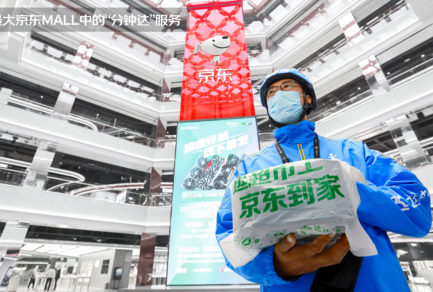Apr 1, 2021|
JD Health: Let TCM Meet Internet, IoT and AI
by Yuchuan Wang
“The pandemic has put Traditional Chinese Medicine (TCM) under the spotlight, and we’ve seen more and more people looking for traditional medicine treatment on our platform,” said Ximu Li, director of the TCM center at JD Health, China’s leading online healthcare platform affiliated to JD.com.
Since the outbreak of COVID-19, both western and TCM means are being applied in China for the treatment of the disease. The promising results have helped TCM gain more recognition both domestically and overseas.
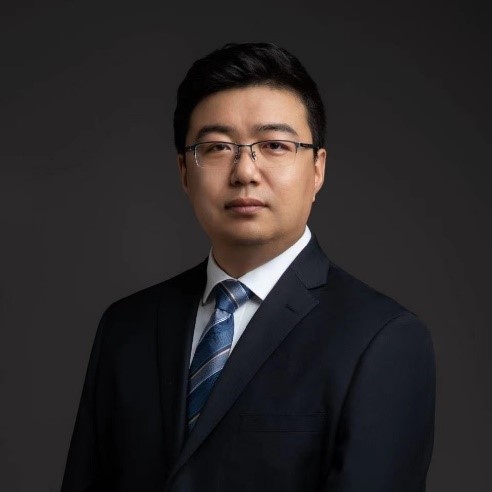 Ximu Li, director of JD Health TCM center
Ximu Li, director of JD Health TCM center
Despite its long history, the development of TCM has encountered some hurdles. According to data from China’s National Health Commission, there are over 34,000 hospitals nationwide, among which TCM hospitals (including integrated traditional Chinese and Western medicine hospitals) account for only 12%.
“There is fertile soil for TCM’s development, as most Chinese people would like to see TCM doctors,” said Chunye Wang, an online TCM doctor at JD Health. “But the limited resources can serve only a small portion of patients, and some may not get the authentic services.”
This is where Internet hospitals like JD Health can play a role. In June 2020, JD Health unveiled a TCM consultation center, which provides users with services from online, and group consultation, prescriptions filing, herbal decoctions preparation and doorstep delivery of medicines, among many others.
So far, JD’s TCM center has attracted over 9,000 doctors to join, quite a few of which are TCM masters and renowned experts.
TCM under the telemedicine model
Having originated in China and now widely accepted both in China and other parts of the world, TCM has a long history that can be traced back thousands of years. Around 770–221 BC (the Spring and Autumn period), Chinese practitioners formed the initial TCM theory and began to use four standard methods of diagnosis: inspection (望), auscultation & olfaction (闻), inquiry (问) and palpation (切).
“Inspection” is a process to examine a patient’s physical and mental status, by observing the patient especially the shape, size, color and coating of a person’s tongue. “Auscultation and olfaction” involve listening to the sound of the body such as breathing and coughing, and for some specific diseases, smelling a person’s body odor. “Inquiry” is to understand the patient’s major complaints.
Among the four diagnostic methods, palpation is believed to be the trickiest part to be taken online because it involves assessing a patient’s pulse by touching both wrists.
IoT technology is of great significance for the development of TCM and the broader medical industry. “We’re seeing a number of electrical devices customized for pulse reading being tested in the market. I believe they will be available in the near future, and will be similar to blood and heart rate monitoring meters, which are no longer rare for family scenarios,” said Li. “The smart wearable device industry is expected to make a breakthrough for the whole healthcare industry.”
“Actually, although palpation is important to TCM diagnosis, it is not essential to obtain a patient’s physical status, especially for online consultation, which are mostly utilized for common diseases or mild symptoms,” said Li.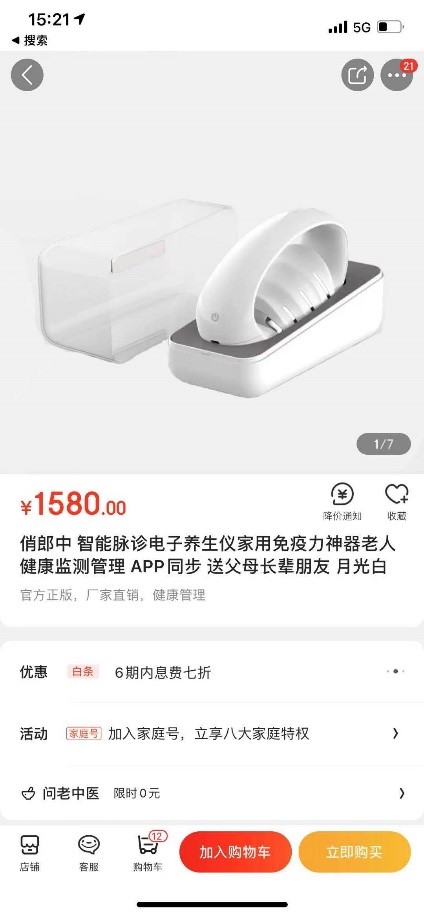 An electrical pulse reading device selling on JD at the price RMB 1,580 yuan (~US$ 240)
An electrical pulse reading device selling on JD at the price RMB 1,580 yuan (~US$ 240)
At JD Health, online doctors are empowered by three consultation methods including text, phone call and video call.
“Through video and photo our doctors can assess many characteristics of the patient remotely, such as their tongue coating status, skin condition, eye color and many other details that can help doctors judge the status of the patient and provide further medical help,” added Li.
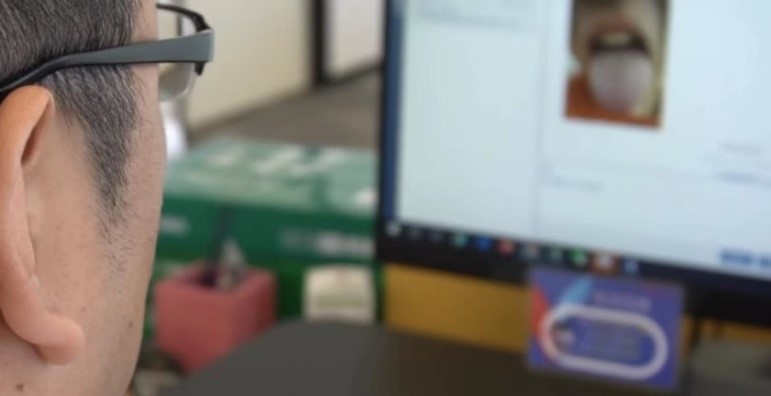 JD Health TCM doctor analyzes a patient’s tongue condition
JD Health TCM doctor analyzes a patient’s tongue condition
“For patients in more severe conditions, we have also established an offline ecosystem that is connected to local hospitals. The medical information that is assessed via the palpation method can be collected by offline doctors and shared online, which means JD Health’s renowned experts can do a group consultation and ultimately make a comprehensive diagnosis, effectively breaking the geographical barrier for the medical resource imbalance.”
Hassle-free herbal decoction preparation
Decoction is a method of boiling herbal or plant material to extract nutrients and dissolve chemicals, which usually takes hours. It is sometimes challenging for patients to do the decoction themselves at home, as the precise method and order of boiling the herbal materials and duration also affect its effectiveness. Now the complicated preparation process can be handled by experts and available through one click on JD Health’s app.
As soon as a patient finishes the consultation online, JD will provide the herbal decoction or slice service immediately, in collaboration with leading herbal decoction companies such as TRT Health and TCMages Pharmaceutical. Thanks to JD Logistics nationwide logistics service, the medicine will be delivered as fast as in 24 hours to users’ doorsteps.
Moreover, patients can also upload a photo of their own TCM prescriptions from offline hospitals, and JD will help prepare and deliver the medicine accordingly.
In order to ensure the quality of traditional medicines, JD Health has set up a series of standards for medicine quality and service in collaboration with leading TCM companies including TRT Health. Professionals from the platform will strictly observe these standards in preparing the TCM slices. At the same time, the whole supply chain of the medicine preparation is made transparent and traceable.
The future – intelligent TCM
“A veteran TCM doctor requires extensive clinical experience. In China, it takes about 15 to 20 years after graduation from TCM study to become a veteran,” said Li. “And it is much more difficult to become a TCM master. There are only 90 TCM masters nationwide, which requires at least 50 years of clinical experience.”
“As a result, the standardization of treatment is urgent for the continuation of TCM, so that young doctors can diagnose with the skill of a veteran, and doctors from primary level hospitals can take reference from TCM masters’ prescriptions to provide better consultation service for patients in lower-tier cities,” Li added.
This standardization is also being explored for “Intelligent TCM,” which uses advanced technologies including AI and big data to digitalize veteran doctors’ experiences and can be integrated into the hospital information system (HIS). “The basic idea is to enable AI and big data to learn how a veteran TCM doctor treats a patient, and empower every TCM doctor through system integration.”
At the JD-powered Internet hospital of the First Affiliated Hospital of Henan University of Chinese Medicine, AI and big data play a vital role.
JD-powered Internet hospital of the First Affiliated Hospital of Henan University of Chinese Medicine
For example, AI is used in the online triage process. By analyzing the symptoms that a patient inputs online, the system will automatically dispatch a doctor whose expertise matches the patient’s condition, enabling an efficient and precise consultation experience.
JD Health also helps integrate verified TCM prescriptions and flags potential incompatible herbal treatments in the system. On the one hand, doctors can reference verified prescriptions, which helps reduce their workloads. On the other hand, the system can automatically remind doctors and patients which herbal medicines may pose a conflict, enhancing medication safety.
As of now, 36 medical departments of the First Affiliated Hospital of Henan University of TCM have launched services on JD Health, with more than 80% of doctors already seeing patients online. Since June 2020, this Internet hospital has received patients from over 20 provinces, municipalities and autonomous regions in China, with a satisfaction rate of 95%.
“What we are doing is transforming TCM to be equipped with Internet technologies,” said Li. “Although China’s core medical resources are still concentrated in first-tier cities, the intelligent TCM solution will bring TCM theory and practical experiences to the doctors in community hospitals or healthcare units, and promote the inclusive development of the whole industry. Our work will also help preserve the inheritance of TCM from generation to generation.”
Li hopes that in 2021 JD can empower more offline hospitals with digital tools, equip more doctors with veteran expertise, bring more experts online and let more patients enjoy universal TCM services. “Let TCM become a lifestyle for Chinese people, not only a medical service.”

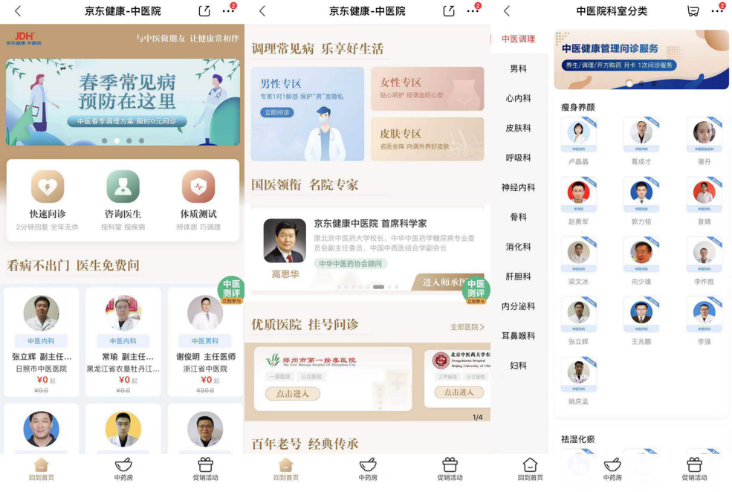
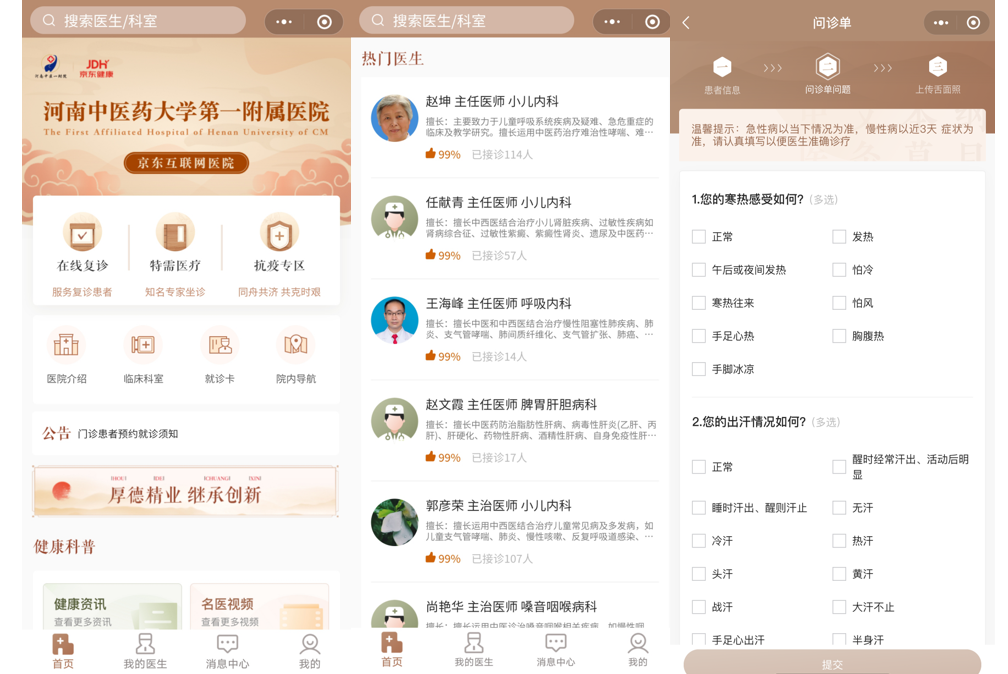
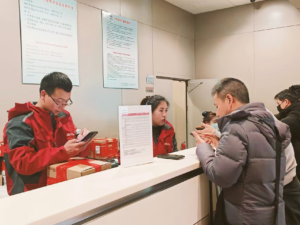 This Harbin tourism boom has also spurred a surge in sales of winter apparel. JD.com’s data indicates a rapid growth in the sales of warm clothing items such as down jackets, snow boots, and thermal underwear between January 1st and 7th. The sales growth is especially pronounced in southern provinces and cities such as Jiangsu, Zhejiang, Guangdong, Sichuan, and Shanghai. Notably, tall snow boots registered a 206% year-on-year increase in transactions, while padded cotton caps and thickened long down jackets soared by 158% and 134%, respectively. Beyond clothing, travel gear has also seen a considerable uptick, with a 98% year-on-year growth in transactions for large suitcases and travel backpacks in these southern regions.
This Harbin tourism boom has also spurred a surge in sales of winter apparel. JD.com’s data indicates a rapid growth in the sales of warm clothing items such as down jackets, snow boots, and thermal underwear between January 1st and 7th. The sales growth is especially pronounced in southern provinces and cities such as Jiangsu, Zhejiang, Guangdong, Sichuan, and Shanghai. Notably, tall snow boots registered a 206% year-on-year increase in transactions, while padded cotton caps and thickened long down jackets soared by 158% and 134%, respectively. Beyond clothing, travel gear has also seen a considerable uptick, with a 98% year-on-year growth in transactions for large suitcases and travel backpacks in these southern regions.
 JD Speeds Up Delivery by Enabling Air Transportation from 310 Cities
JD Speeds Up Delivery by Enabling Air Transportation from 310 Cities
